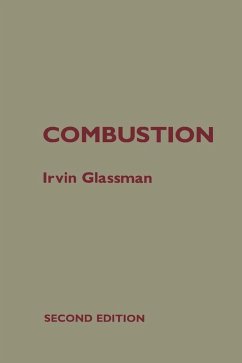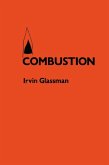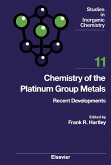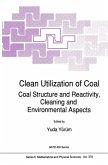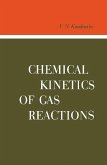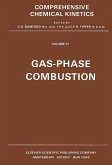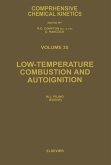Combustion, Second Edition focuses on the underlying principles of combustion and covers topics ranging from chemical thermodynamics and flame temperatures to chemical kinetics, detonation, ignition, and oxidation characteristics of fuels. Diffusion flames, flame phenomena in premixed combustible gases, and combustion of nonvolatile fuels are also discussed.
This book consists of nine chapters and begins by introducing the reader to heats of reaction and formation, free energy and the equilibrium constants, and flame temperature calculations. The next chapter explores the rates of reactions and their temperature dependency; simultaneous interdependent and chain reactions; pseudo-first-order reactions; the partial equilibrium assumption; and pressure effect in fractional conversion. The chain branching reactions and criteria for explosion explosion are then considered, along with the limits and oxidation characteristics of fuels such as hydrogen, carbon monoxide, and hydrocarbons. The remaining chapters look at the laminar flame speed and stability limits of laminar flames; deflagration and detonation; burning in convective atmospheres; and the theory of thermal ignition. The final chapter is devoted to the burning of nonvolatile fuels such as coal.
This monograph will be a valuable resource for students and teachers of physics.
This book consists of nine chapters and begins by introducing the reader to heats of reaction and formation, free energy and the equilibrium constants, and flame temperature calculations. The next chapter explores the rates of reactions and their temperature dependency; simultaneous interdependent and chain reactions; pseudo-first-order reactions; the partial equilibrium assumption; and pressure effect in fractional conversion. The chain branching reactions and criteria for explosion explosion are then considered, along with the limits and oxidation characteristics of fuels such as hydrogen, carbon monoxide, and hydrocarbons. The remaining chapters look at the laminar flame speed and stability limits of laminar flames; deflagration and detonation; burning in convective atmospheres; and the theory of thermal ignition. The final chapter is devoted to the burning of nonvolatile fuels such as coal.
This monograph will be a valuable resource for students and teachers of physics.
Dieser Download kann aus rechtlichen Gründen nur mit Rechnungsadresse in A, B, BG, CY, CZ, D, DK, EW, E, FIN, F, GR, HR, H, IRL, I, LT, L, LR, M, NL, PL, P, R, S, SLO, SK ausgeliefert werden.

